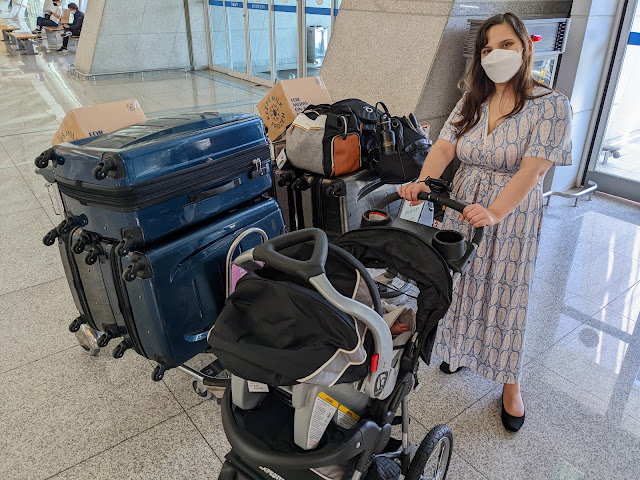
UNGA (pronounced "ung-GAH" and not "U-N-G-A") stands for the United Nations (UN) General Assembly. It's one of the most important events of the year in international affairs, and - as I wish I had known earlier so I could have managed my expectations - it requires an immense amount of preparation before, during, and after. (For staffers like me, there's an emphasis on the "before" there.)
It was only my second week on the job when I was slammed with one of the busiest work weeks of my life (and that's saying something). Our team put together over 200 documents for our principals (i.e., the people we staff) and handed the final binder to our Assistant Secretary as she walked out the door with literal seconds to spare. When some details changed after folks had already departed for New York, we fixed materials in Washington, DC and made sure someone on the ground could get them where they needed to go. Several times, we were told at close of business one day that multiple documents had to be drafted and approved by multiple offices and several principals by opening of business the next day. I'm proud of the work my colleagues and I accomplished, but I'm grateful not to be working through nights and weekends every week.
UNGA technically goes on for months, but all eyes are on high-level week (HLW, also called high-level General Debate). This is where world leaders and high ranking officials meet and make speeches and talk with the press to help the public understand current events and (hopefully) advance good foreign policy. It's a unique opportunity, and it's the job of cogs in the bureaucratic machine like me to make sure we don't waste it.
I now have a whole new appreciation for how much goes on behind the scenes to make UNGA happen. All that being said, I'd be lying if I didn't say I'm relieved HLW is only one week out of the year. My advice to anyone transitioning to State Department headquarters in DC for the first time is to brace yourself for UNGA in advance. Cancel your night and weekend plans the week before UNGA if necessary. Arrange potential childcare options. Do what you need to do. (Or just don't do what I did and instead go for a job that isn't quite so affected by events like UNGA.)
Working on UNGA was a crash course in so many things I'm learning in my new position: how the building (i.e., State Department HQ) works (also referred to as how Washington works), how to balance the needs of drafting offices with clearing offices (I'll try to do a post about the clearance process later), when best to pick up the phone versus write an email versus walk over to someone's office, and so much more. I can already tell this is going to be a year of much professional growth and challenge. And now that UNGA HLW is over (and that I'm mostly trained and getting the hang of my job), I'm really looking forward to it.





